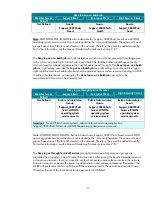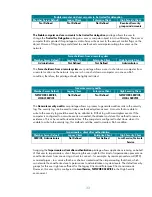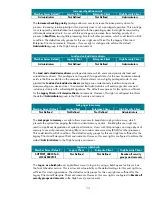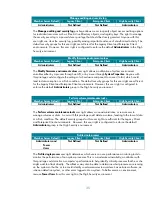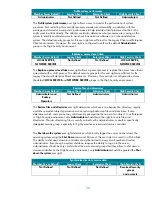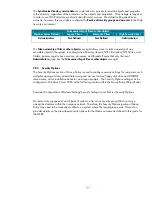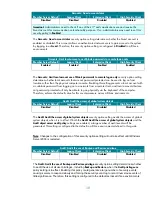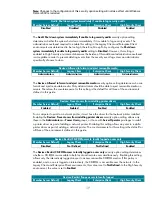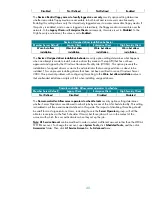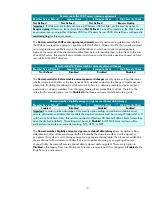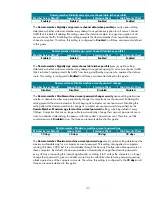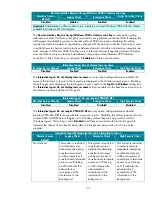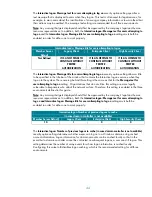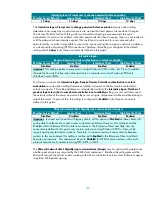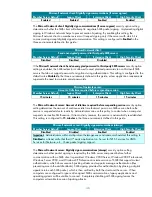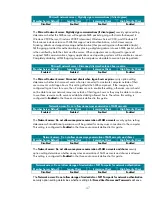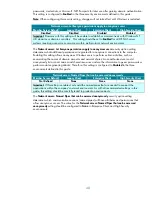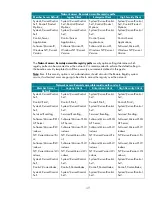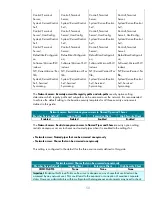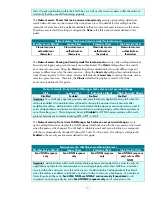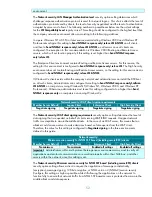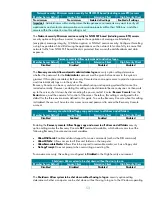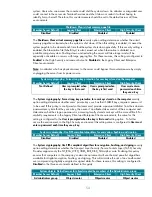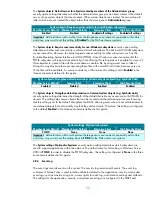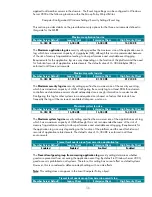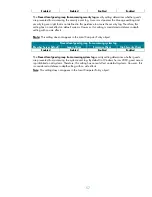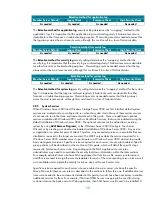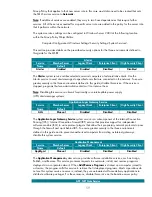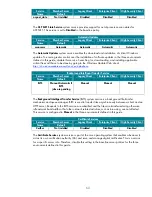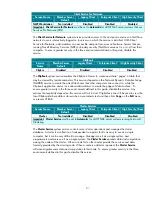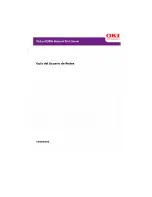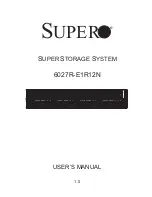
46
Microsoft network client: Digitally sign communications (if server agrees)
Member Server Default
Legacy Client
Enterprise Client
High Security Client
Enabled Enabled Enabled Enabled
The
Microsoft network client: Digitally sign communications (if server agrees)
security option setting
determines whether the SMB client will attempt to negotiate SMB packet signing. Implementing digital
signing in Windows networks helps to prevent session hijacking. By enabling this setting, the
Microsoft network client on member servers will request signing only if the servers with which it is
communicating accept digitally signed communication. This setting is configured to
Enabled
in the
three environments defined in this guide.
Microsoft network client:
Send unencrypted password to third-party SMB servers
Member Server Default
Legacy Client
Enterprise Client
High Security Client
Disabled Disabled Disabled Disabled
If the
Microsoft network client: Send unencrypted password to third-party SMB servers
security option
setting is enabled, the SMB redirector is allowed to send plaintext passwords to non-Microsoft SMB
servers that do not support password encryption during authentication. This setting is configured to the
default value
Disabled
in the three environments defined in this guide, unless application requirements
supersede the need to maintain secret passwords.
Microsoft network server:
Amount of idle time required before suspending session
Member Server Default
Legacy Client
Enterprise Client
High Security Client
15 minutes
15 minutes
15 minutes
15 minutes
The
Microsoft network server: Amount of idle time required before suspending session
security option
setting determines the amount of continuous idle time that must pass in an SMB session before the
session is suspended due to inactivity. Administrators can use this policy to control when a computer
suspends an inactive SMB session. If client activity resumes, the session is automatically reestablished.
This setting is configured to
15 minutes
in the three environments defined in this guide.
Microsoft network server: Digitally sign communications (always)
Member Server Default
Legacy Client
Enterprise Client
High Security Client
Disabled Disabled Enabled Enabled
Important:
Administrators within multi-protocol heterogeneous environments should set this setting to
Disabled
or at least verify that their 3
rd
party application (i.e. Server for NFS, Services for UNIX,
Services for Netware, etc…) have packet signing support.
The
Microsoft network server: Digitally sign communications (always)
security option setting
determines whether packet signing is required by the SMB server component before further
communication with an SMB client is permitted. Windows 2000 Server, Windows 2000 Professional,
Windows Server 2003, and Windows XP Professional include versions of SMB that support mutual
authentication, which closes session hijacking attacks and supports message authentication (thus
preventing man-in-the-middle attacks). SMB signing provides this authentication by placing a digital
signature into each SMB packet, which is then verified by both the client and the server. When
computers are configured to ignore all unsigned SMB communications, legacy applications and
operating systems will be unable to connect. Completely disabling all SMB signing leaves the
computers vulnerable to session hijacking attacks.

